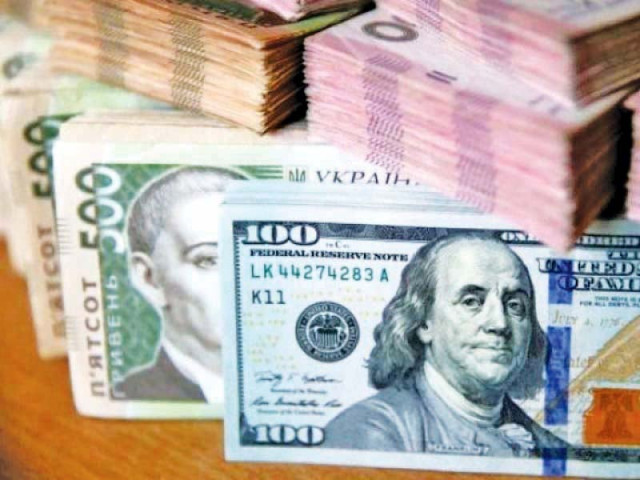Govt unveils new forex rules
Bars account holders from depositing currencies purchased from markets

The government has barred foreign currency accountholders from depositing currencies purchased from markets in an apparent attempt to discourage hoarding, control misuse, money laundering and smuggling of currencies by fake traders.
“A foreign currency account (maintained by individuals) shall not be credited with any foreign exchange purchased from an authorised dealer, exchange company or money changer except allowed by the State Bank through general or special permission under any law,” said the Foreign Currency Account Rules 2020.
“However, foreign currency brought in from abroad and duly declared at the point of entry into Pakistan with Pakistan Customs may be credited into the account.”
“People have transferred abroad foreign currencies worth around $160 billion in the past 25 years through legal channels and smuggled billions of dollars through alleged money laundering to buy properties and deposit in Swiss bank accounts,” Exchange Companies Association of Pakistan (ECAP) Chairman Malik Bostan said while talking to The Express Tribune after the Ministry of Finance introduced the regulations the other day.
Association members informed Prime Minister Imran Khan several months ago that fake traders smuggled foreign currencies worth around $10-15 million a day in the name of trade with Afghanistan and Iran. “Fake traders mostly purchase US dollars from black markets,” he said.
The new regulations bind accountholders to take special or general permission from the State Bank of Pakistan (SBP) for depositing foreign currencies purchased from markets. They need to declare the purpose like they are doing so to pay education fee for their children or for themselves at abroad and/or to pay hospital bills and to fulfill other obligations in foreign countries.
Moreover, the government introduced the new regulations just after it allowed resident and non-resident Pakistanis having foreign currency accounts in local banks to invest in saving certificates through their accounts.
“The objective of attracting investment in saving certificates is to stabilise and build up the country’s foreign exchange reserves. If they (resident and non-resident Pakistanis) invest through purchase of foreign currencies from local markets, then the practice will kill the purpose of attracting investment in saving certificates,” Bostan said.
Anecdotal evidence suggests foreign currency accountholders used to build their deposits through purchase of currencies from local markets, mainly during the days when the rupee depreciated against the US dollar and other major currencies in the near past.
The practice led to an increase in deposits at commercial banks and slashed the country’s foreign currency reserves managed by the State Bank.
The new regulations have also tightened monitoring of financial transactions in compliance with the measures suggested by the international financial transaction watchdog - the Financial Action Task Force (FATF) - to control money laundering and terror financing.
“The government has apparently introduced the new regulations to better manage foreign exchange reserves,” Bostan said.
He, however, urged the SBP to keep rules simple for giving special and/or general permission in cases where accountholders may be allowed to deposit foreign currencies purchased from any foreign exchange, authorised dealer, exchange company or money changer.
Alpha Beta Core CEO Khurram Schehzad said the new regulations would improve the rupee-dollar parity.
Foreign Currency Account Rules 2020 says, “There shall be no restriction on cash withdrawal or transfer from the foreign currency account.”
A foreign currency account may be credited through transfer from other individual foreign currency account, according to the regulations.
Proceeds realised on account of profit, return and principal amount of investment made in any foreign currency-denominated or foreign currency-linked scheme of government of Pakistan may be credited into the account, the regulations said.
A foreign currency account of an individual may be credited with remittances received from abroad through the banking channel except the following, namely; payment of goods exported from Pakistan, payment for services rendered in or from Pakistan, proceeds of securities issued or sold to non-residents and any foreign exchange borrowed from abroad under any general or special permission of the State Bank, according to the regulations.
Published in The Express Tribune, October 11th, 2020.
Like Business on Facebook, follow @TribuneBiz on Twitter to stay informed and join in the conversation.


















COMMENTS
Comments are moderated and generally will be posted if they are on-topic and not abusive.
For more information, please see our Comments FAQ